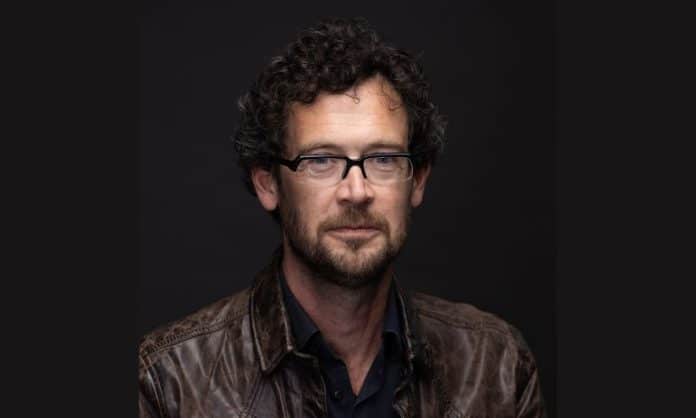Ruán Magan, an Irish award-winning film director, will be in Brussels for the European premiere of his new documentary, “Our Blue World, A Water Odyssey,” on 4 June 2024 at Bozar. The event is organized by the United Nations in Brussels and Bozar to celebrate World Environment Day on 5 June. This film takes the audience on a world tour of water questions—and, above all, solutions.
The film explores, for instance, the “sponge city” concept, implemented in China with the Sanya Dong’An Wetland Park to absorb the monsoon rainfall and avoid flooding in an urban context. Another example of collective resilience is in Cape Town, South Africa, where local authorities and citizens managed severe water shortages caused by drought.
The documentary deploys itself as a journey to meet remarkable people. These include individuals such as Li An Poah, a Dutch “ecological philosopher” who defends the idea of drinkable rivers, and whole communities whose cultures have led to original solutions. Among them are a complex canal system in Peru’s mountains or giving a river in New Zealand legal personality.
Ruán Magan gave UNRIC this exclusive interview ahead of the screening at Bozar.
What is the story behind the subject of your latest documentary, “Our Blue World, A Water Odyssey”?
The project originated with Paul O’Callaghan, the president of the Brave Blue World Foundation, who made a documentary in 2020, “Brave Blue World,” about technological solutions for water problems around the planet. We discussed how we could make something more fundamental and began to look at this idea: human beings have had a strong relationship with water since the beginning of time.
We were excited and co-wrote it. But Our Blue World is just a beginning, part of an impact campaign that has just started. We will screen it in as many countries as possible. We started in Singapore, the USA, and China and are now in Brussels for the first time in Europe. The documentary is part of a long tail to connect people over the next years through a website.
Did global warming also trigger your documentary?
Of course. A lot of focus and attention is given to carbon and fossil fuels, while we are only beginning to understand that water is a big part of global warming. Humankind has managed to disrupt the water cycles.
There were floods in Scotland last week, in Afghanistan recently, and none of that is normal. Floods are happening all the time because the world is heating, and we have blocked the natural flow of the water cycle. We are disrupting this flow with big cities, for instance, and that’s why the world is getting dryer and dryer.
What specific place does this new documentary occupy in your career?
My company, Create One, makes one or two documentaries each year. Over the years, it has reached a large worldwide audience. Many of these stories are Irish, but they always deal with something bigger, universal themes, and are played everywhere. I hope this new documentary will also reach millions of people.
What is the most striking learning that may have occurred for you while researching and writing the documentary?
One of the things I like to focus on is the fact that we have divided ourselves, as humans, often thinking we are separate from each other. With water, you quickly find how interconnected we are, and much more similar than we think we are.
All cultures have a mythology and rituals based on water. There is a lovely line in the documentary when a man in Cambodia says, “We are the water people”. That’s basically the theme of the film. Water connects us more strongly than anything else.
The film takes viewers through Canada, Cambodia, the USA, China, Peru, Burundi, Ireland, New Zealand, and many other places. How did you choose these places? Were you looking for specific stories about problems/solutions around the globe?
Exactly. We wanted to film on every continent except the Antarctic, where people are not living, for a truly global story. Right now, people are making a big difference in many countries.
That has made our decision on where to go, to explain the “sponge cities” in China, for instance, where we met the extraordinary landscape architect Kongjian Yu, or to go to New Zealand and the Netherlands. Our Blue World is a hopeful film, showing strong minds and lots of ordinary people, who are making a change in Ireland, Peru and elsewhere.
This World Environment Day 2024 focuses on land restoration, desertification and drought resilience. What reflexions do they inspire?
While the challenge is huge, the solution is quite simple. We must learn the water back and follow where it wants to go. I’m moved when I see how small interventions can make big changes. In Ireland, it is a matter of putting some rocks in the ground…
“Water has so much to teach us”, says one man in your documentary. Besides the need to live in harmony with nature and to preserve our environment, what are the main conclusions you would personally draw from your work on water?
There is a shot in the documentary of people doing Tai Chi in China. I really like that: being in flow, where the water choses to go. This element has strength and softness at the same time, a good lesson for life.
Are you optimistic in the face of climate change?
Yes, I’m really optimistic. History shows that we can adapt, and we will. There are problems, but we will make the efforts to overcome them. In the long term, I’m optimistic.
Note: To organize screenings of Our Blue World in your country, please contact the website Brave Blue World.

